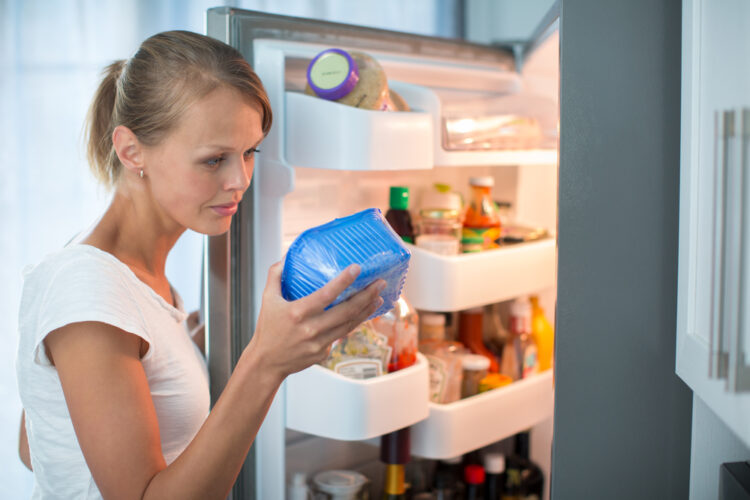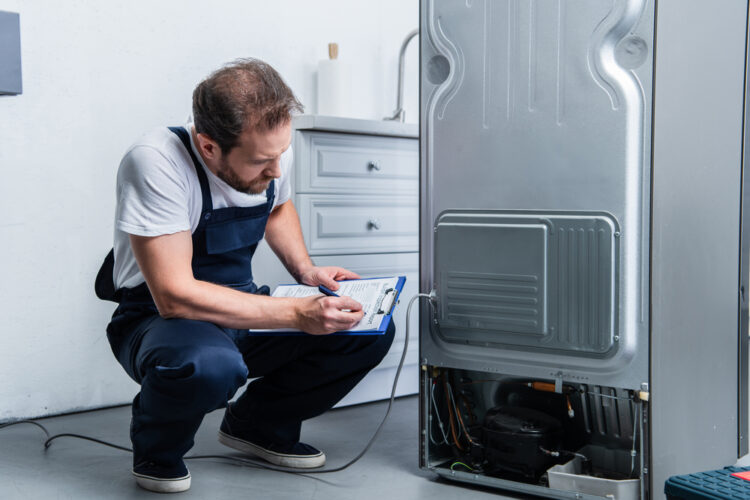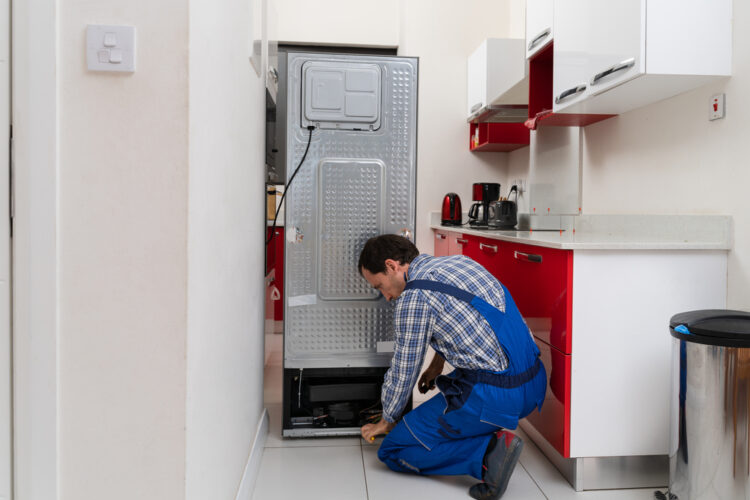A lot could go wrong with your GE refrigerator. Everything from items that should freeze but do not to those that should not be freezing yet, is. Some have to do with a dispenser that has no water. Sadly, most of the mishaps happen at the least expected times.

It can be frustrating when you need the fridge to work, and it fails to. However, it is bound to fail since it is a gadget like any other.
The good news is that, in most cases, such failures come with error codes. You can always diagnose your fridge and know exactly what is wrong.
This way, you can decide if the problem is minor enough to fix on your own or if you need expert help. But what are some of your fridge’s issues, and how do you identify them?
As a gadget specialist, I will highlight some of the most popular errors with GE refrigerators.
The fridge is not Cooling, yet Freezer is Fine

Your first suspect should be the connection. Chances are that the fridge is not plugged in properly, which will affect the freezer too. Other reasons for the fridge failing to cool may include the following:
- Clogged vents
- The door fails to close tightly
- Broken seals
- Dirty or broken condenser
Also, check to ensure the fridge is not accidentally switched off. Ensure that the plug is correctly lodged inside the socket. There should be no irregular wiring or defective fuse.
The bottom line is to identify the cause of the issue before attempting to fix it. Even so, there are a few possible solutions to this standard error. These include:
- Properly plugging in your refrigerator
- Fixing broken doors and seals to ensure everything works as it should
- Closing the fridge door properly since the condenser in some fridges does not work without it
- Moving the fridge away from direct sunlight
- Clean the condenser coils behind the fridge
When the Fridge Stops Making Ice
The GE fridge is common for not making ice. This happens so often that it is not surprising. Some owners are already so used to it that they go about without the ice when it should not be.
Fortunately, there is a solution to this issue. Below are a few things you can do to ensure you get the full benefits of your fridge.
I would suggest first checking if the valve has any blockage. The ice maker gets water from the house’s major supply line. This means that any blockage will affect it too.
You should turn off the main water and fix the blocked tubing to resolve the issue. If debris is on the screen, clean it, as this allows water to flow back into the ice maker.
Also, check the in-flowing tubes for clogs. Manually shut off this valve and clean the inside, making sure it is clear.
The other reason the fridge fails to make ice could be faulty components. If any part of the ice maker is defective, then there will be a problem with making the ice.
Confirm if this is the case. You may have to purchase the entire ice maker unit and replace the defective one. If the units are intact, replacing the ice maker assembly may work. Check to ensure the freezer section’s temperature is below 15 degrees Fahrenheit.
When your GE Fridge is Noisy or too Loud

If your fridge has a loud humming sound that you can hear from a distance, then chances are that there is a problem. More often than not, this signifies a filthy compressor. There are several remedies to this.
Cleaning the compressor coils will help with this problem. When the coils are dirty, the coils at the back of the fridge dissipate heat. As the dirt cakes and dust accumulate, the refrigerator works harder. This often leads to sounds.
A faulty compressor may be behind the noise. If cleaning the coils does not make things easier, the compressor is defective.
You will hear clunking and knocking noises every time the compressor shuts off. This signifies that the internal components of the compressor are faulty.
The GE Fridge Fails to Defrost
Failure to defrost is another problem that happens with GE fridges. A malfunctioning defrosting system most likely causes it. There are several things you can do to fix this issue.
First, you need to check the defrost timer for faults. This timer activates the defroster severally. This then melts accumulated ice on the evaporator coils.
In case it malfunctions, the defrost cycle fails to happen. In turn, the heater cuts off, and ice accumulation continues.
To fix this, first, move the dial into the defrost cycle to find out if the timer is malfunctioning. Make sure the heater is on, but the compressor is off.
The timer doesn’t progress if it fails to send electricity to the defrost components. Replace the defrost timer if this goes on for over 30 minutes.
GE Fridge Leaking Water

Another common occurrence is the GE fridge leaking. Unfortunately, when this happens, the hardwood floors in your kitchen may get damaged. It also causes the kitchen to get messy. It may happen because of a clogged defrost tray.
Fix this by flushing the drain with boiling water. Also, check for debris blocking the drain and remove them physically.
FAQs
What are the common problems with a GE refrigerator?
The issues are diverse and include the following:
- Excessive condensation.
- The motor runs hot.
- The fridge is making loud sounds.
- Food spoils much quicker than it should.
- Food is room temperature to touch.
What is the most common problem with a refrigerator?
This has to be temperature concerns. The fridge is not cooling, or other related issues are the most common problems with fridges.
What is the most common cause of refrigerator failure?
There are three major common causes of fridge failures. These include wear and tear, mechanical faults, and dirt accumulation that affects efficiency.